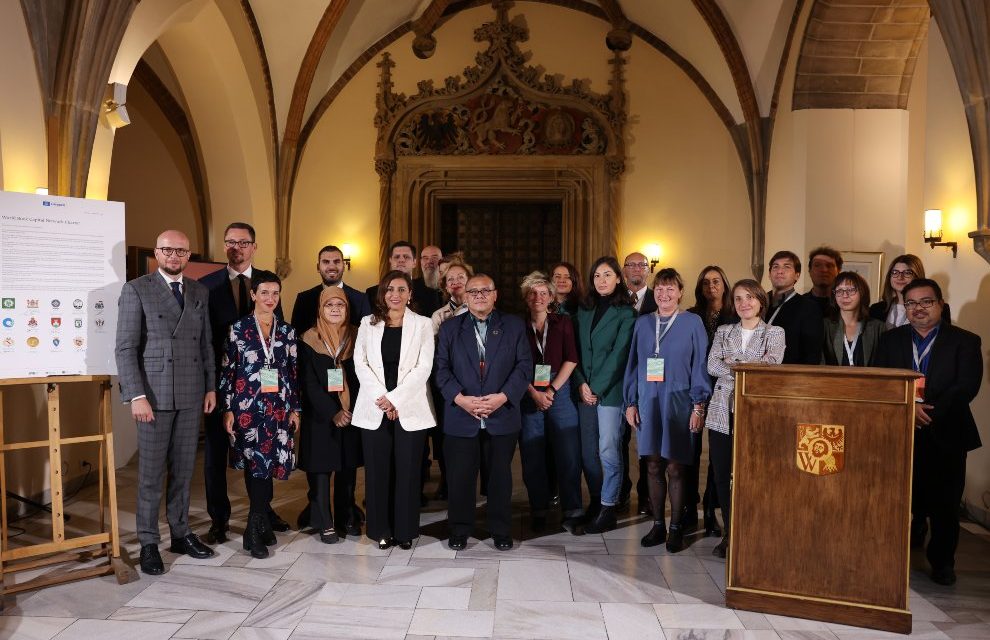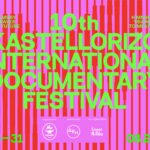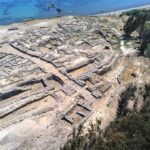A diverse global partnership of organisations, civil society groups and cities that support each other to create a lasting community of readers was set up in September 2022. The World Book Capital Network (WBCN) acknowledges the power of books and reading as cornerstones to more inclusive, peaceful and sustainable societies.
The Network believes in the empowering and transformative potential of books and stories for individuals and societies. Within this framework, it strengthens the World Book Capital programme’s existing commitment to literacy, lifelong learning, copyright, and freedom of expression after its relaunch as a Network. Cities designated as UNESCO World Book Capital undertake to carry out activities with the aim of encouraging a culture of reading and diffusing the Network’s values in all ages and population groups, both within and beyond national borders.
It is the Network’s firm belief that every person has the right to access books as a vital component to the educational and cultural life of the community, to enjoy them and to share in their benefits. Thus, it aims to: raise literacy levels; safeguard freedom of expression, freedom of information and the freedom to publish; improve access to books, reading and information, notably for vulnerable groups and individuals; broaden opportunities for publishers, writers, translators, booksellers, librarians, and others involved with books; recognize progressive practices that favour books and a diversity of literary traditions.
Reading Greece spoke to Ian Denison, Global Coordinator of the World Book Capital Network about the scope and initiatives of the Network as well as the impact of the World Book Capital programme on cities.
Tell us a few things about the scope and initiatives of the World Book Capital Network.
The main document that defines the objectives of the World Book Capital Network is the World Book Capital Charter. In the Charter UNESCO and its partners confirm that:
The World Book Capital Network believes in the empowering and transformative potential of books and stories for individuals and societies. Every person has the right to access books as a vital component to the educational and cultural life of the community, to enjoy them and to share in their benefits.
The Network was formally set up only in 2022 but in its informal group and since there have been a number of solidarity initiatives between cities, in particular support for Ukranian refugee children and writers.
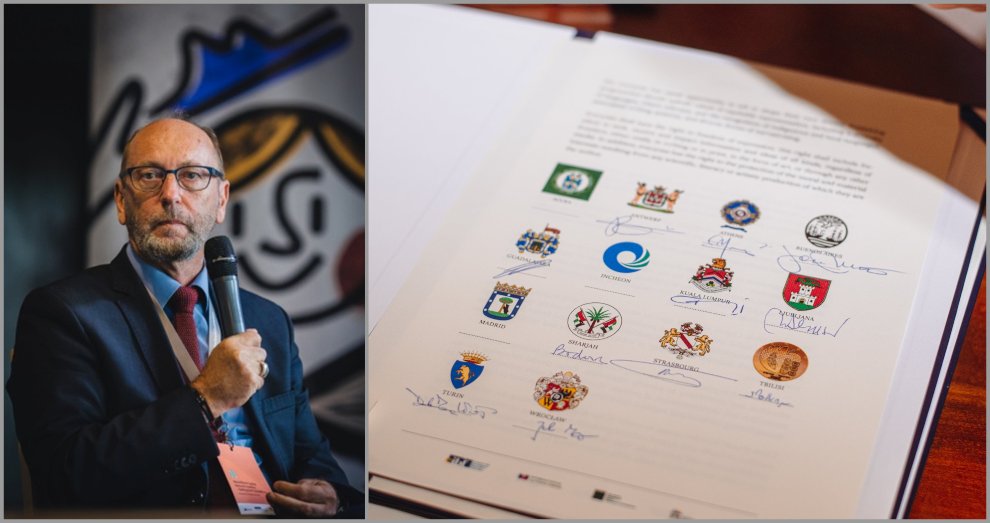
What do you deem is the influence of the World Book Capital programme on the cities it takes place? Would it be feasible to talk about a global community of readers?
It is difficult to measure (unfortunately) the real impact of the programmes in each city, which is obviously quite different each time. In building the Network, through discussions with the member cities, we have had quite a lot of positive feedback about the sustainability of the programmes that were rolled out in each city. Gathering more information on this is part of an on-going process which is quite arduous because for the earlier cities there were no measurement and the ties with those cities have been lost.
The building of the Network is really to help reconstruct the narratives for each city so that we can help future cities. The Network is really in its early days and trying to build that global community of readers, the success will depend on UNESCO to provide leadership and link up with other reading initiatives.
What is to be expected by the Network in the foreseeable future?
There are some nice projects in the incubator, the most prominent one will be to create a World Book Capital Prize which will be awarded to an individual or institution from the cities which has contributed to the development of the book sector.
Some cities, such as Bangkok and Kuala Lumpur are working on local initiatives to develop publishing and reading in their own areas. We suffer from lack of resources, so we are also focusing on fundraising to help us communicate and build activities.
Athens World Book Capital 2018
The City of Athens held the UNESCO title of World Book Capital from April 23rd 2018 to April 22nd 2019. For a whole year Athens celebrated reading with the intention of making books accessible to all socio-economic classes, of promoting knowledge, of inspiring, creating and offering incentives for reading, learning and for cultural expression.
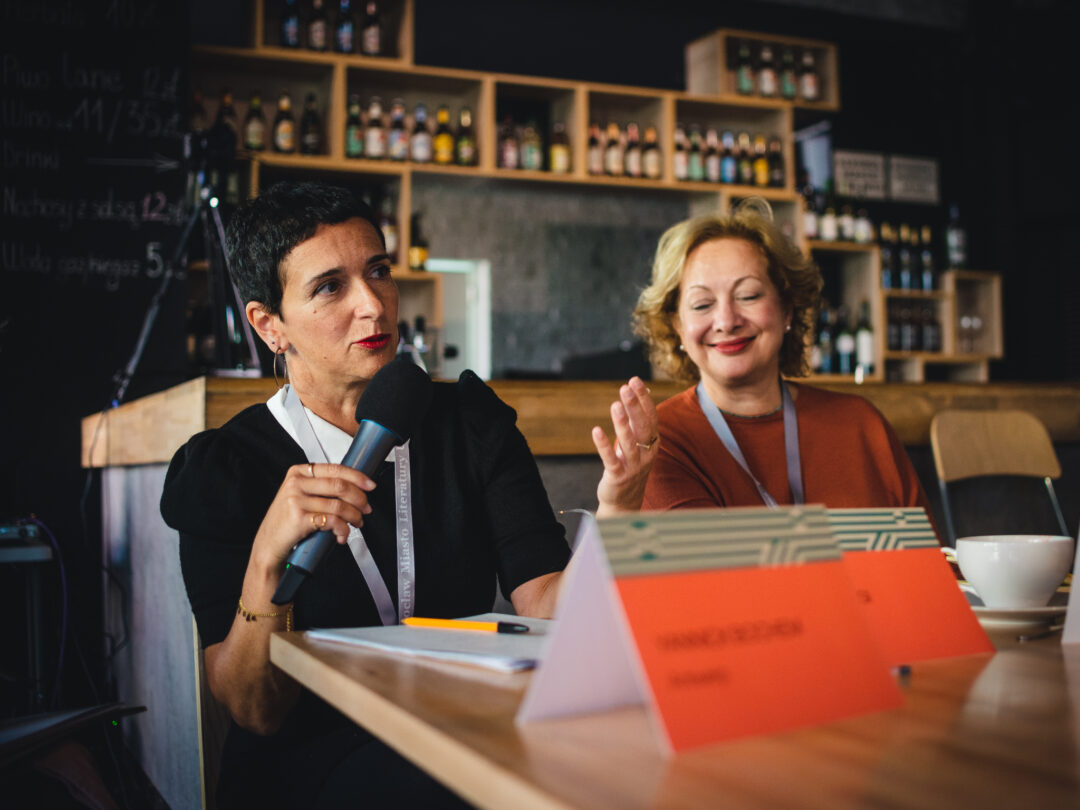
The main theme of Athens World Book Capital (AWBC) was “Books Everywhere” and the programme was developed under 8 pillars: Celebrating Reading – Discovering Reading Treasures, A World of Writers, Greek Writers, Athenian Book Itineraries, Open Collections and Archives, Educational Activities, Book and the Arts, Contemporary Narratives. Each of these pillars contributed in achieving the main goal of the project: making books and culture accessible and available to everyone, residents or visitors, in every neighborhood of the city. Moving libraries, books on wheels, pop-up libraries, festivals, talks, conferences, performances, esteemed authors from around the world, poetry readings, installations and exhibitions, provided a literary scenery for all tastes, ages and nationalities.
Anna Routsi, Press officer of Athens World Book Capital 2018 and expert member to the Network, spoke to Reading Greece about her experience, commenting that “the year of the organization Athens 2018 World Book Capital was one of the most intense and most creative that I have ever experienced! The Municipality of Athens, under the coordination of Athens Culture Net, had prepared the program with its axes, themes and main events and we decided to enrich it, in the form of work in progress, throughout the year, as there was an increasing interest by various different agencies and organizations. Finally, 615 actions were organized in every neighborhood of Athens, in collaboration with 212 agencies that attracted the interest of about half a million visitors”.
The proposal of Athens received an international distinction by UNESCO, because it was inclusive and addressed to all the population of the city, wanting to make books and reading accessible everywhere and to everyone. “Of course, something like this would not be possible without the support of foundations, institutes, embassies and without the cooperation of so many agencies and places in the city, but also without the decisive contribution of civil society, publishers, writers, people from the book industry, and arts in general.Because the aim was to combine books with various arts, to emphasize and celebrate its value as a source of joy and creativity in unexpected forms,” Routsi explains.
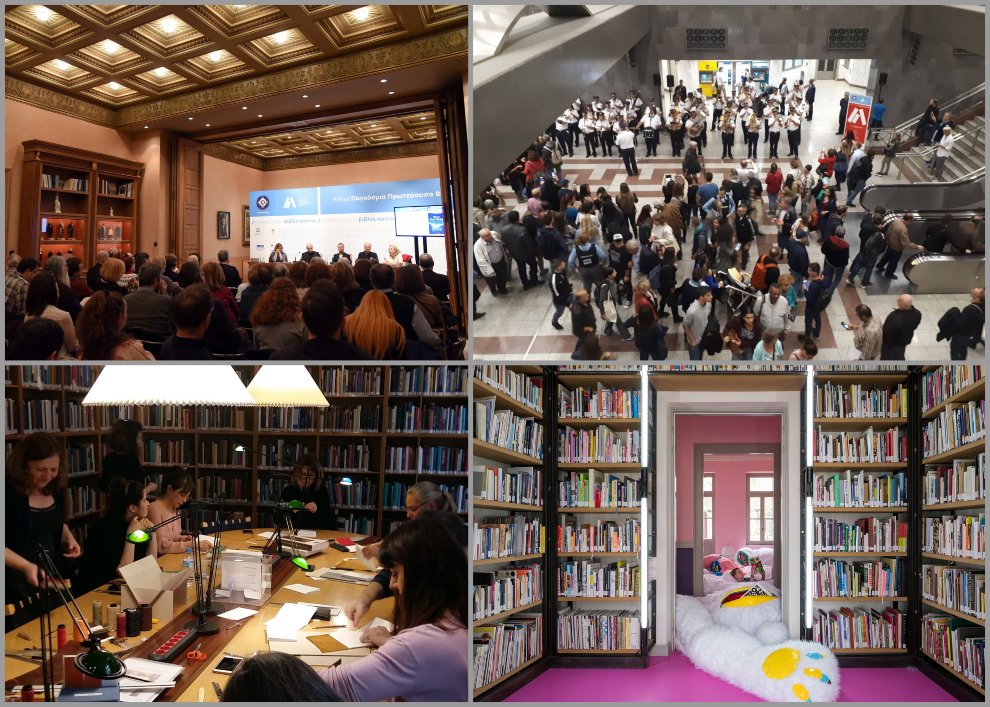
As for the opportunities that have opened up for the city of Athens, Routsi reckons that “what the organization has bequeathed us is an invaluable network of collaborations with individuals and organizations and the confirmation that only through synergies and always with respect and freedom of expression, can we achieve something better.In fact, in the final report of Athens to UNESCO, one of our proposals was the creation of a Network that would comprise all the cities that have been and will be World Book Capitals, so that the legacy of each event is not lost over time; the experience and know-how could help improve both the institution and the work of new, candidate cities and create a fertile ground for further collaborations between cities.It is therefore a great pleasure that indeed, the Network took shape with the signing of its Charter in September 2022. There are already actions among its members and in fact, with the support of the Hellenic Foundation for Culture, the Network will also be present at this year’s Thessaloniki Book Fair!”
The World Book Capital Network participates in the Thessaloniki Book Fair 2023. The respective panel discussion will take place on Friday, 5 May from 5:00-6:00 (Hall: Dialogue, Pavillion 13)
A.R.
INTRO IMAGE: © Νabs Ahmadi
Read more: Reading Greece | Athens – World Book Capital City of 2018
TAGS: LITERATURE & BOOKS | READING GREECE

